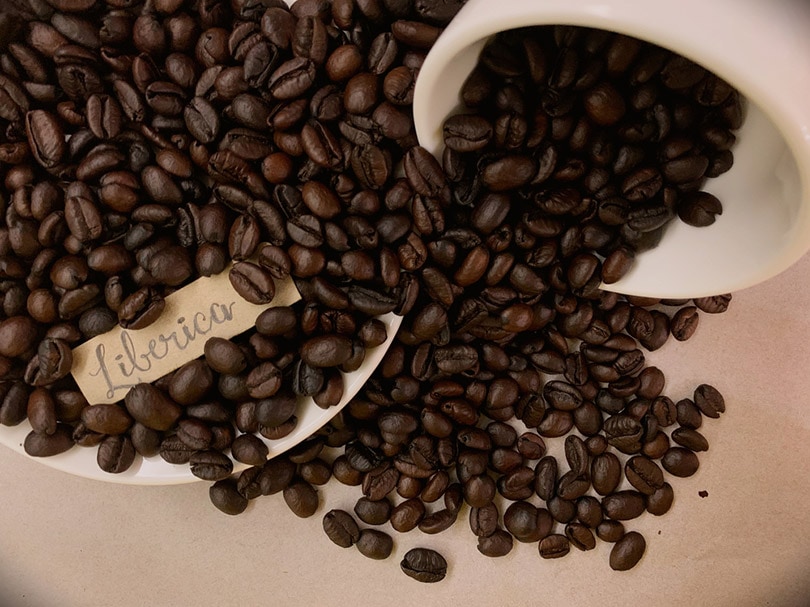
Liberia is turning a rare bean into a national moment. The government has moved to name Coffee Liberica its flagship product under the Food and Agriculture Organization One Country One Priority Product initiative, a bold strategy that seeks to brand Liberia around a crop that is uniquely its own. If the plan unfolds as outlined, Coffee Liberica will become a rallying point for farmers, processors, exporters and investors who want to turn heritage into income and rural communities into engines of growth.
A rare coffee with a big idea behind it
Coffee Liberica is not the familiar Arabica or Robusta bean. It is a distinctive, indigenous species with roots in Liberia that offers a story the global coffee market has not heard enough. By choosing Coffee Liberica for the OCOP program, Liberia is staking a claim to product differentiation, not only to increase export earnings but to preserve a part of national agricultural heritage. The move signals confidence that identity and quality can be packaged together to find premium buyers and niche markets.
From Rome to Monrovia a roadmap was drawn
The decision follows high level talks at FAO headquarters in Rome, where Liberia’s Minister of Agriculture, Dr. J. Alexander Nuetah, met FAO officials including the head of the Plant Production and Protection Division and the OCOP Secretariat. Both sides agreed on a fast tracked application process and a practical roadmap to move from idea to launch. That roadmap includes forming a National Task Force drawing on the Ministry of Agriculture, the Central Agricultural Research Institute and coffee farmer organisations to lead coordination and technical work.
Practical governance and local ownership
Implementation will be overseen by three national focal points, who will manage coordination, technical operations and stakeholder engagement. FAO will provide initial financial support through its Technical Cooperation Programme to kickstart activities in 2026. These governance steps are designed to ensure the initiative is not a one off publicity event but a sustained program with accountability, scientific input and farmer representation.
Timing and the national fair
Liberia is aiming to unveil Coffee Liberica on a national stage. The tentative launch is planned to coincide with the National Agriculture Fair scheduled for December 2 to 6, 2025, pending a visit by the FAO Director General. Aligning the launch with the fair would spotlight Coffee Liberica to local and regional buyers, policy makers and private investors gathered for the event.
What OCOP offers Liberia beyond a brand
OCOP is about more than a logo. The initiative provides technical assistance, capacity building, marketing support and pathways to regional and international trade fairs. For Liberia, the benefits include global visibility for Coffee Liberica, training for farmers and processors, opportunities for South South cooperation with other coffee producing countries and access to early FAO funding to help bridge the gap from pilot to scale. That mix of support makes it easier for private investors to see a credible business case.
Jobs, investment and supply chain transformation
The OCOP approach aims to convert uniqueness into livelihoods. Liberia expects Coffee Liberica to generate employment across planting, processing and export functions while attracting private capital into agribusiness and value addition. When a country builds a clear identity around a product, buyers and investors are easier to convince, and downstream industries such as milling, packaging and specialty roasting can emerge. That is how a crop becomes a rural development engine.
A realistic look at production and potential
Current projections show Liberia’s coffee output remains modest by global standards. Market research indicates production is expected to reach roughly 9,770 60 kilogram bags by 2028, reflecting a flat short term growth outlook but steady historical gains since the mid 1990s. Framing Coffee Liberica as a premium, traceable product gives Liberia a pathway to add value even without an immediate surge in tonnage. A smaller, higher priced specialty market can often deliver more farmer income than simply scaling bulk volumes.
What success will look like
Success will be visible in several ways. Farmers will earn higher margins for traced and graded Coffee Liberica. More agribusiness firms will invest in processing and quality control. Liberia will be represented at international coffee forums and trade fairs as a distinct origin with a story to tell. And crucially, community based value chains will show measurable improvements in incomes, processing jobs and export earnings. The FAO partnership and a functioning national task force will be critical to reaching these outcomes.
A story worth selling
Coffee Liberica gives Liberia a narrative that combines biodiversity, culture and commerce. In a crowded global coffee market, origin stories matter. Buyers increasingly pay a premium for traceability, sustainability and unique flavour profiles. By packaging history and quality together under a coordinated national program, Liberia is creating a marketable identity for Coffee Liberica that could yield long term benefits for farmers and the national economy.
Turning a native bean into a flagship product is an exercise in confidence and strategy. Liberia is betting that authenticity, good governance and international partnership can unlock value where scale alone has not. If the early steps are well managed, Coffee Liberica could become more than a crop. It could be a model for how a nation uses its agricultural uniqueness to build better livelihoods and a stronger place in global markets.
Stay updated with the latest farming tips and agriculture industry news from Africa by subscribing to our newsletter. Don’t miss out on valuable insights and updates. Follow us on Twitter, LinkedIn, and Facebook to join our farming community and stay connected with us.


















